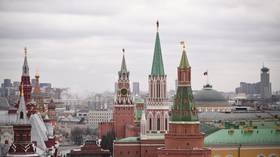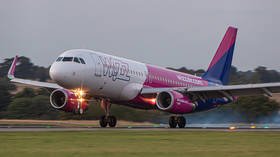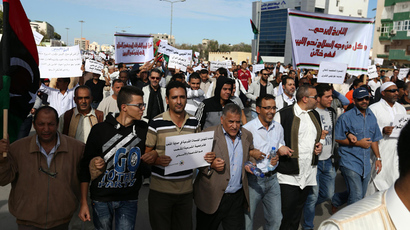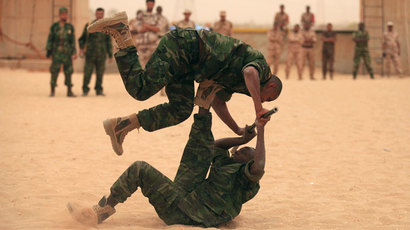Fresh clashes in Benghazi as Libyan army struggles to keep militants out
Libya’s army clashed with Islamist militants in Benghazi on Wednesday, amidst reports of grenade detonations. The Libyan government is struggling to retain control of the area after fierce clashes on Monday.
New gun battles resounded across three parts of the port city on Wednesday morning. Members of the Ansar al-Sharia militant group hurled the grenades at security forces, initiating the attacks, according to a security official who spoke to AFP. However, he later retracted the statement saying it was unclear who instigated the assault. At least one person was reportedly injured.
The army rushed reinforcements
into the city according to residents and calm was later restored.
Three soldiers were killed in separate 'assassinations' in Benghazi, also on Wednesday, according to city officials who spoke to Reuters.
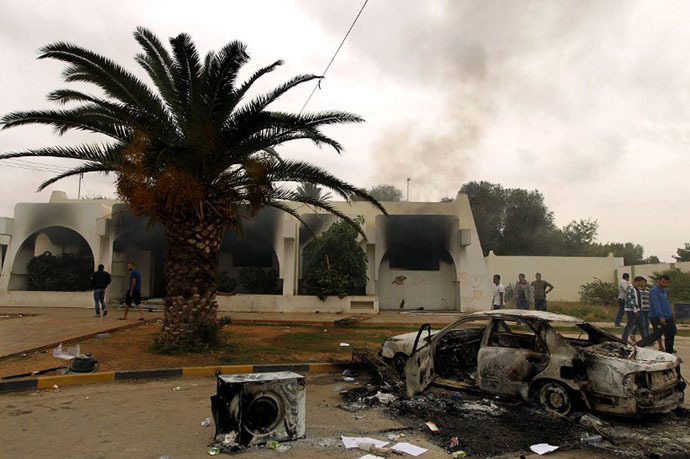
The clashes follow intense
fighting which broke out between the army special forces and
members of Ansar al-Sharia in the city on Monday, killing at
least nine.
“It’s a message to Libya’s
government. We want authorities to solve the problems that are
making the people suffer,” one male resident told RT shortly after
the Monday attack.
“We want everyone who’s illegally carrying weapons to disarm.
We want an end to the bloodshed,” a further elderly female
resident stated. “The people are rallying for security
in Libya, for the army and police to play the roles they’re
supposed to,” added a uniformed man.
Libya descended into chaos after the death of Gaddafi two years ago, and the country remains in political turmoil. The country’s administrative and security structures remain incredibly fragile. The most recent escalation happened on November 15 when 46 people were killed in the Libyan capital, after members of a militia group opened fire on peaceful protesters.
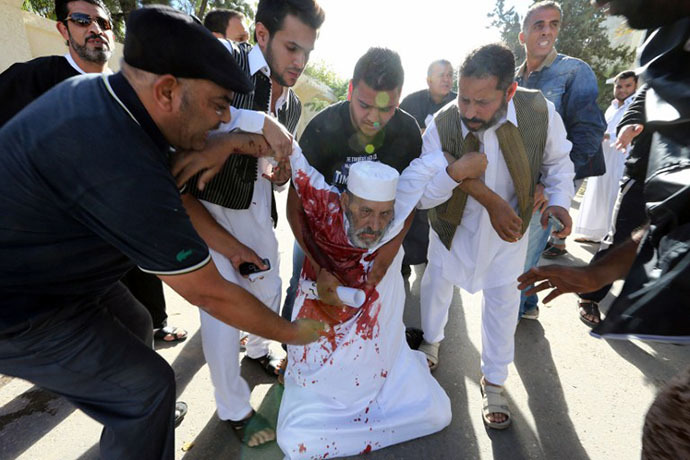
Only last month, the country’s Prime Minister Ali Zeidan was
kidnapped from his own residence by militia.
Western powers have been promising more aid to the army in the
face of the growing anarchy. The fighters who helped to oust
Gaddafi two years ago have since been challenging Libya’s
government.
“It’s a very weak government if it is at all a government –
they can’t seem to get them to disarm at all. The militias are
keeping their weapons and they’re defying the government,”
Moeen Raoof, Defense Consultant, told RT.
The deputy chief of intelligence was also kidnapped within the last two weeks. “They can do as they want,” Raoof said. “You’d have thought that intelligence at least would have some information about this before it happened.”
A separatist Libyan region announced the establishment of an independent oil company earlier this month after taking over several commercial sea ports. Protesters shut off the country’s only natural gas export line to Italy on November 11. Oil exports are currently working at a fraction of their capacity because of such seizures.
In addition, oil workers, civil servants and private sector staff
participated in a strike in Benghazi on Tuesday.
“The armed gangs are wanting to control the assets of oil
production so that they can finance their activities. They will
not succeed and they will have also to repair the damage to the
oil industry in Libya. Furthermore the major importers like
Italy, France and Germany will not deal with them. They would
rather buy oil from somewhere else than deal with the
militias,” Mamdouh G. Salameh, an oil consultant to the World
Bank told RT.








